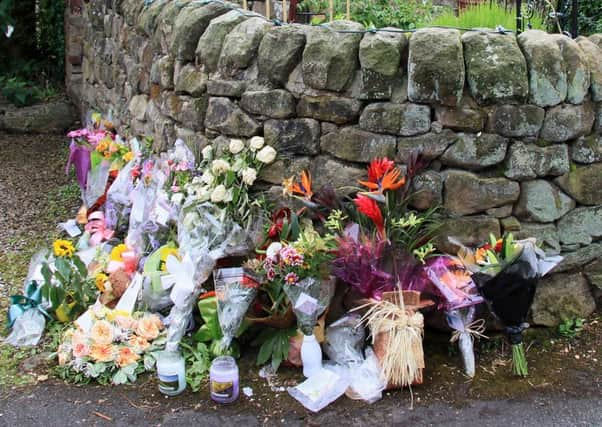'˜Missed opportunities' to stop killing of pregnant mum and son at their Derbyshire home


The findings of a report published today (Friday) looking into the care of Andrew Cairns in the run-up to the tragedy found there were several missed opportunities in the run up to the killings.
Thirty-eight-year-old Rachael Slack and her 23-month-old son Auden were discovered with multiple stab wounds in their Holbrook home on June 2, 2010.
Advertisement
Hide AdAdvertisement
Hide AdCairns, who had a history of mental illness, was also found dead at the house after taking his own life.


Now a report by NHS England into the deaths says a Care Programme Approach -used by medical staff to plan people’s mental health care - was loosely applied to deal with Cairns before he carried out the attack.
The findings of the report said: “Information sharing between various medical services involved in his care was not as efficient as it could have been, resulting in delays in diagnosis and treatment.
“Also missed was the opportunity to fully collaborate with those who knew him over a longer period, namely the victim and his sister, in the building of an essential understanding of his personality and illness, as well as any potential safe-guarding issues.”
Advertisement
Hide AdAdvertisement
Hide AdDr David Levy, regional medical director at NHS England, said ‘any missed opportunity is unacceptable’ and apologised to both families on behalf of the NHS England and Derbyshire Healthcare Trust which provided mental health care to Cairns.


He said: “We would like to offer our sincere sympathies to the people who have been affected by this tragic incident. Thankfully, events such as this are rare. However, when they do occur, we work closely with the relevant organisations to ensure that lessons are learned and improvements put in place to make any changes necessary to ensure patient and public safety.”
The NHS England report found that the incident ‘was neither predictable nor preventable’.
It says Cairns received appropriate treatment for depression, which was compliant with NICE guidelines and a reasonable and proper approach was taken in treating his personality disorder.
Advertisement
Hide AdAdvertisement
Hide AdBut the investigation found there was a ‘lack of formal involvement’ with Rachael Slack and Cairns’ sister in the management and approach to his care.
The report reads: “When (his) mental health deteriorated, formal involvement from Rachael and (his) sister was crucial as they would have provided valuable information and insights into his mental state which would have warranted exploration.”
In conclusion, it offers three recommendations to healthcare providers based on the case of Cairns:
- Ensuring formal adherence to the Care Programme Approach (to make information sharing between professionals as efficient as possible)
- Working with carers (and family members where applicable)
- Improving liaison with families after adverse events.
Advertisement
Hide AdAdvertisement
Hide AdIn 2014, a serious case review conducted by the Derbyshire Safeguarding Children Board (DSCB) into the deaths revealed the tragic events could not have been prevented or predicted.
But the 76-page document highlighted there was need for serious improvement in the way police, social services and health providers dealt with those at risk of domestic violence at the time of the Holbrook stabbings.
Although an inquest concluded health services were not to blame for the three deaths, the report levelled many criticisms at the way Cairns was assessed.
The report read: “It should have been identified by those professionals providing services to Mr Cairns that his mental health problems were likely to impact on the welfare and development of Auden.”
Advertisement
Hide AdAdvertisement
Hide AdSpeaking at the time, Rachael’s boyfriend Robert Barlow said the deaths had left a ‘massive hole in the family’s life’
And he said: “Things have got to change - policies, structures have got to change. Everybody has got to learn to communicate and share the information through the professional bodies. There’s too much fracture between the police and mental health, and the carers. Basically the left hand doesn’t know what the right hand is doing.
“The information was there, it’s just that the professionals didn’t have all the information at any one given time for them to act accordingly and make a life-changing decision.”